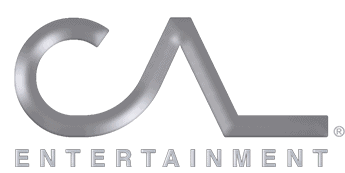Chris Voss is a CAL Entertainment Featured Speaker
It’s 1983 and Chris Voss was hired at the FBI just before his 26th birthday. During his 24 years of service with the Bureau, Voss became a leading international kidnapping negotiator. He regularly engaged with some of the world’s most dangerous criminals in extremely high-stakes scenarios. One of the moments that put Chris on the map was the time he successfully negotiated the release of hostages after a 1993 bank robbery at a Chase Manhattan bank in Brooklyn.
I imagine Chris’s life a little like a scene from one of my favorite TV shows, The Americans, a period drama about two KGB spies (portrayed by Keri Russell and Matthew Rhys) posing as Americans in suburban Washington, D.C., during the Reagan administration. Voss is currently the founder and head of the Black Swan Group, where he and his team are leveraging his deep knowledge and experience to train businesses and individuals to become highly effective negotiators.
Here are a few things I learned from Chris:
“The enemy is not the person across the table; the adversary is the situation.”
In other words, don’t make people the enemy–focus instead on the problem to be solved. Negotiation shouldn’t be a zero-sum game if you’re planning to be in business long-term. So how do we win without burning bridges? The best strategy according to Voss is to “come up with a better deal than both parties could have imagined. You’re both faced with different aspects of the same problem. So by definition, you have to look out for the other person to get to the best deal you can get.”
As a counterargument example, I brought up Mark Cuban’s book, How to Win at the Sport of Business. Doesn’t Mark advocate for crushing the competition to win at all costs? Voss pointed out that he’s worked with Cuban indirectly as an adviser with two of his companies. He answered me by making the comparison of doing business with Walmart and with Mark Cuban.
In the case of Walmart, it’s widely known that suppliers can expect to be hammered on price and must accept low margins. In Voss’s experience, he’s recognizes that Cuban is a savage in business, but his focus is on the demand for high performance, not putting suppliers out of business. “Mark pays his people well but expects excellence and, at the very least, your best effort.”
That distinction is important and you can see more evidence of Cuban’s philosophy and humanity played out on the basketball court with the Dallas Mavericks. His team hasn’t won a championship since 2011, but Mark has invested in top players, like Luka Doncic, who continue to perform at the highest level; despite the Covid shutdown, he’s paid out-of-work employees at the Mavs arena so even the lowest paid among them can continue to support their families; and Mark’s been a champion for small businesses for over a decade via his show and investments on Shark Tank.
You can still crush the competition by out-performing them and you’ll be respected, not hated. You can’t sustain a career by being a bully or making great deals every five years while you wait for new management to cycle in or feelings of resentment to subside. Chris suggests, “The velocity of deals is key and it’s often ignored. We should be making great deals every month.”
Figure out if you’re the favorite or the fool.
Who has more control in a negotiation, the person who’s talking or the person who’s listening? Voss shares his secret to gaining the leverage in a negotiation and explains how you can shift the power to your advantage. Who are you in this conversation?
“In any negotiation, there’s always a favorite and a fool. If you’re the favorite, you should never cut your price.” The favorite is the expert or person who is in demand, the obvious choice. If you look at how humans make decisions, do not underestimate the favorite and the fool because (Voss insists) in at least 20 percent of the cases, you’re the fool.
I asked Chris: How do we find out if we’re the favorite or the fool? He replied, ask the other person, “Why did you choose me? If I’m the favorite, you’re going to tell me.” There may be people with lower prices out there, but if your potential client really wanted the low-price leader, she would be talking to them, not you.
Use tactical empathy.
While many believe that business is war, Voss sees getting to wins as a collaboration with effort on both sides rooted in empathy. “Aim to magnify positive emotions. To try and take emotions out of negotiation is a fool’s errand.” So be kind. Be professional. Put yourself in your rival’s shoes and figure out a way for you to both be happy.
Use mirroring.
“In any given negotiation, both sides are hiding information.” Mirroring is a simple technique that can be used by great negotiators to learn the truth. It’s more than just demonstrating that you hear and understand. It’s about how you can gather vital information and put your counterpart at ease. “Mirroring is critical to the subtle art of letting the other side have it your way.”
There are many more lessons for business pros to be learned in this episode of Behind the Brand with Chris Voss. Watch the video here:

